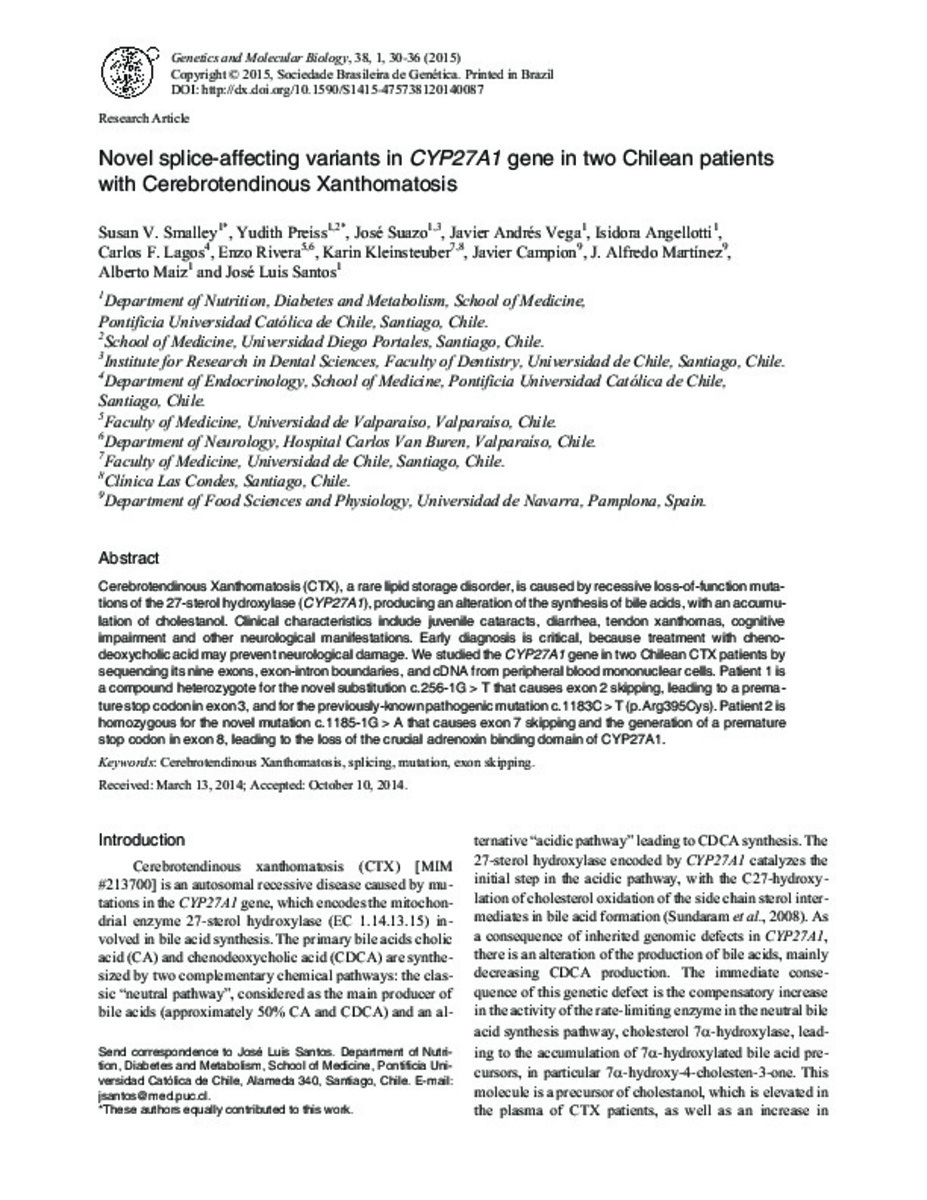Novel splice-affecting variants in CYP27A1 gene in two Chilean patients with Cerebrotendinous Xanthomatosis
Palabras clave :
Cerebrotendinous Xanthomatosis
Splicing
Mutation
Exon skipping
Fecha de publicación :
2015
Editorial :
Sociedade Brasileira de Genética
Cita:
Smalley SV, Preiss Y, Suazo J, Vega JA, Angellotti I, Lagos CF, et al. Novel splice-affecting variants in CYP27A1 gene in two Chilean patients with Cerebrotendinous Xanthomatosis. Genet Mol Biol. 2015 Mar 38(1):30-36
Aparece en las colecciones:
Estadísticas e impacto
0 citas en

0 citas en

Los ítems de Dadun están protegidos por copyright, con todos los derechos reservados, a menos que se indique lo contrario.







